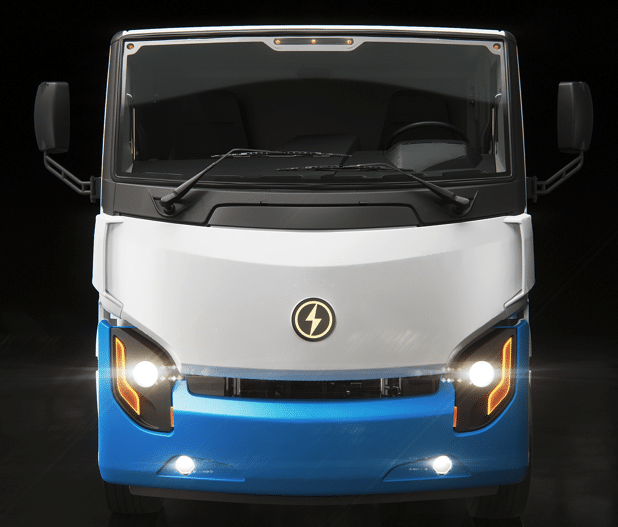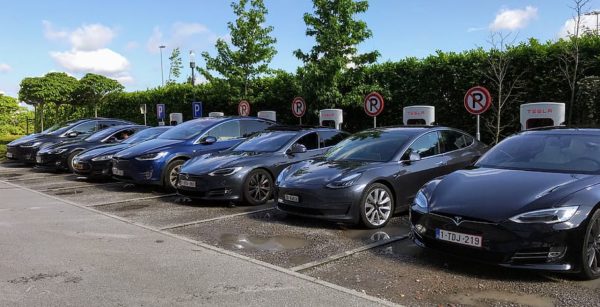
Sector-wide pressure in the electric vehicle segment has been rough on The Lion Electric Company (Lion Electric Stock Quote, Charts, News, Analysts, Financials TSX:LEV) but analyst Naumar Satti of Laurentian Bank Securities says policy tailwinds and first-mover advantage in Canada are in the company’s favour. Satti maintained a “ Speculative Buy” rating and $18/share target price for a projected return of 124 per cent in an update to clients on Friday.
Quebec-based Lion Electric designs, develops, manufactures and distributes purpose-built all-electric medium and heavy-duty urban vehicles in North America, with its product line including battery systems, chassis, bus bodies and truck cabins. Satti’s updated analysis is a setup for the company’s impending financial results for the opening quarter of its 2022 fiscal year, which are expected on Tuesday.
“LEV’s quarterly results are inconsequential at this stage as the company derives its value from future production once the Joliet, Illinois facility comes online,” Satti said. “However, recent supply-chain issues and potential cost pressures can result in delays in the execution of the growth strategy. Our focus remains on LEV’s order book which has remained robust for electric school buses but muted for electric trucks.”
Ahead of the official release, Satti projects the company’s quarterly reports to be headlined by revenue of $18.8 million (all report figures are in US dollars) for sequential loss of 18 per cent and a year-over-year increase of 201.4 per cent, though the revenue is paired with an adjusted EBITDA loss of $6.7 million.
Satti’s projections come in below the consensus estimates of $23 million and an adjusted EBITDA loss of $6 million.
Lion Electric has been busy over the last week, having signed a Memorandum of Understanding (MOU) with the U.S. Department of Energy to assist in the development and deployment of vehicle-to-everything (V2X) technologies, with an emphasis on developing and integrating a bidirectional EV charging infrastructure into America’s power grid.
The company also announced it is working to help customers secure funding for electric buses under the Environmental Protection Agency’s Clean School Bus Program, where priority districts could receive full funding (approximately $375,000 per bus), while other eligible districts can receive up to $250,000 per bus, thus largely aligning the price of an electric bus to that of a conventional internal combustion engine vehicle.
“As the leader in all-electric school buses, Lion is in a fantastic position to help customers secure this new EPA funding for both all-electric school buses as well as charging infrastructure, which in some cases will fund the entire purchase of a new zero-emission Lion school bus,” said Marc Bedard, CEO and Founder of Lion Electric in an April 28 press release. “Lion put its first electric school buses on the road in the U.S. in 2016, which have since been driven in real world operating conditions. We are clearly an early mover in the space and, with our planned capacity of 20,000 vehicles per year at our Illinois manufacturing facility, are ideally positioned to put made in America electric school buses on the road at scale.”
While Satti’s quarterly projections show decreases, his annual financial projections show Lion Electric potentially being at the start of an accelerated growth path, as he forecasts 2022 revenue of $156 million for a potential year-over-year increase of 171 per cent. He then projects exponential growth for 2023 with a target of $814 million for a year-over-year jump of 420 per cent before jumping into 10 figures for 2024 at a projected $2.28 billion for a 180 per cent year-over-year increase, solidified by a $2.5 billion forecast for 2025.
Accordingly, Satti’s EV/Sales multiple is projected to drop from the reported 13.6x in 2021 to a projected 8.7x in 2022 before plummeting to a projected 1.9x in 2023 and 0.6x in 2024.
Meanwhile, after reporting a loss in 2021 and projecting another for 2022, Satti forecasts Lion Electric’s adjusted EBITDA to once again become positive in 2023 at $89 million for a margin of 10.9 per cent. He then forecasts an uptick in the margin in 2024 (15.5 per cent, $353 million in adjusted EBITDA) and 2025 (15.2 per cent margin, $380 million in adjusted EBITDA).
Satti re-introduces an EV/EBITDA multiple in 2023 at 17x, with a projected drop to 4x in play for 2024.
With developments in both Canada and the United States emphasizing a push toward zero-emission vehicles, Satti believes there will be ample opportunity for Lion Electric to capitalize moving forward.
“As LEV ramps up the construction of ‘Built-in-America’ EV manufacturing facility and Lion Campus (battery plant and innovation center) in H2/22, in our view, LEV is well positioned to monetize on the growing global demand and dominate in the medium- and heavy-duty urban vehicle markets,” Satti said.
“Although LEV is in the early stages of growth and the EV industry is poised for multi-year double digit growth, we recognize that valuing LEV on traditional metrics can be difficult. Our positive view on LEV stems from its first-mover advantage with products already on road. Furthermore, LEV being the only major EV player in Canada, we expect continued policy tailwinds and contract wins from Canadian customers. Our Spec. Buy rating is reflective of the large execution risk for the company. LEV’s stock price has declined by ~70 per cent, part of the decline is attributable to production challenges and lack of backlog growth. However, we highlight that the entire sector has seen downwards-multiple ratings as investors’ risk appetite for early-stage growth companies has declined,” Satti said.
Lion Electric’s share price has hit a bit of a lull to start 2022 with a 36 per cent loss in that time. After reaching an early 2022 high of $12.49/share on January 17, the stock has been slowly declining since, having dropped to a 2022 low of $7.86/share on April 29.




 Share
Share Tweet
Tweet Share
Share




Comment